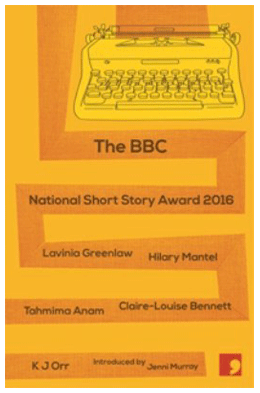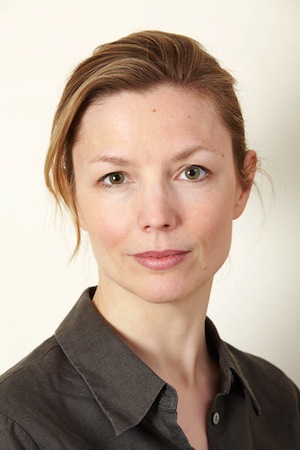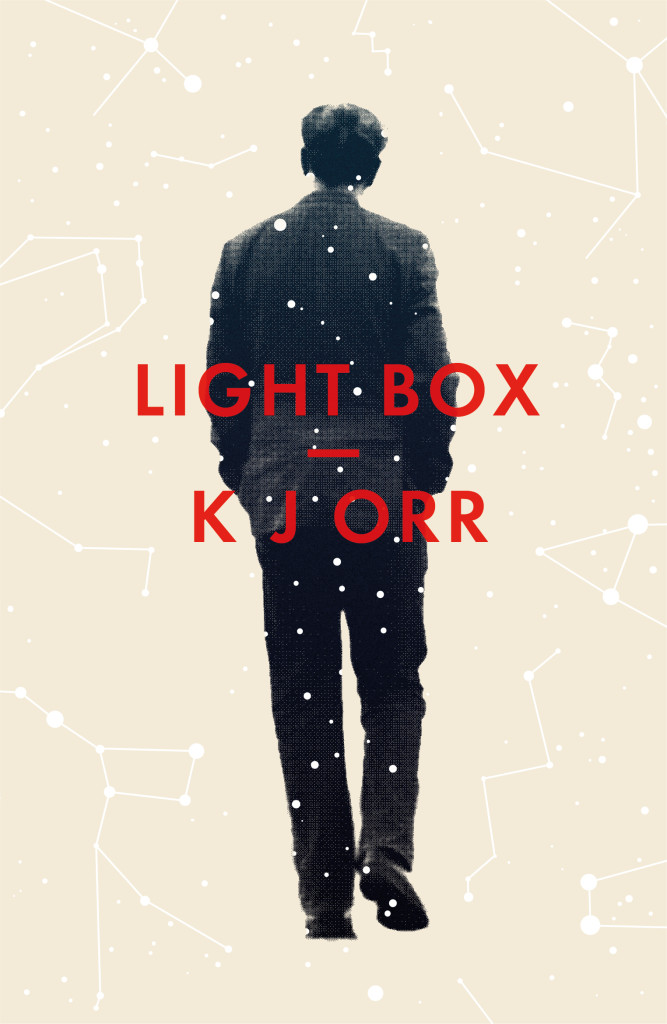
('Reading a Book' © Joanna M. Foto)
*
AN INTERVIEW WITH KJ ORR
by VICTORIA HEATH
KJ Orr was the 2016 winner of the BBC National Short Story Award, for her story ‘Disappearances’, about a retired plastic surgeon in Buenos Aires who finds himself drawn to a café waitress. Orr’s short fiction has been broadcast on BBC Radio 4, and published by The Dublin Review, The White Review, Lighthouse, Daunt Books and The Sunday Times Magazine online, among others. Light Box, her debut collection of short stories, was published in February 2016. She studied at St. Andrews, UEA, and Chichester University, and has published essays and reviews in Poetry Review, the TLS and the Guardian, as well as publishing articles and conducting Short Story Masterclass podcasts for THRESHOLDS.
~
Read KJ Orr’s story
‘Disappearances’
on the Guardian website.
~
Victoria Heath: Katherine, Congratulations once again, from all of us here at THRESHOLDS, on your recent win in the 2016 BBC National Short Story Awards. You must be thrilled. Especially as it comes so soon after your debut collection, Light Box, was published.
KJ Orr: Thank you so much!
 VH: How does it feel to have received such a prestigious award?
VH: How does it feel to have received such a prestigious award?
KJO: It is wonderful having my work recognised and celebrated in this way – an honour to find myself in such company on the shortlist, and an honour to win.
VH: I’d love to know more about your winning story, ‘Disappearances’, where did that start?
KJO: There’s always a danger in answering this question – that of the writer imposing a retrospective narrative of how it happened, and suggesting a process that is more managed than is necessarily true. That said, ‘Disappearances’ did come out of time spent in Argentina: what prompted me to start work on the story was an old man I saw in a café in Buenos Aires. He was striking and solitary and stayed with me. With so many stories the starting point for me is something (in this case, a glimpse of someone) that I can’t shake – that keeps coming back to me over time. The story develops from there, and of course other elements and layers get added.
VH: You recently graduated with a Ph.D. in Creative Writing from the University of Chichester. I understand that throughout your studies you have focussed on short fiction – what is it that draws you to the form?
KJO: I find the short story endlessly fascinating and challenging as a form – both as a reader and writer. I always begin reading short stories with such a sense of anticipation. I love that you can’t predict what will happen – because there is just so much that can be done through the form, it is so changeable. As a writer this means that the challenge of finding the form that works for your subject feels fresh each time you begin a new piece: what worked for the last story won’t necessarily work for the next one. And while this is arguably true for all fiction, with writing a collection you are confronted with this challenge many times over – so this keeps you on your toes. It feels to me a very live process of discovery, getting into a short story. I feel as a writer that short stories constantly remind me to be open to the possibilities of form, while as a reader I sense a very precious form of dialogue – one that makes a requirement of me to remain alert and responsive. Short stories ask the reader to pay attention: I love that. Put another way, they value the reader, the reader’s imagination, engagement and attention. I find this both moving and important – profoundly connective.
~
Short stories ask the reader
to pay attention: I love that.
~
VH: Which short stories, or story writers, have stayed with you and influenced your work?
KJO: Very early influences I can point to – from when I started to read short stories with real hunger – were Raymond Carver, Flannery O’Connor and J. D. Salinger: three of a good few. These were influences in as much as they really made me want to write, and to make my own explorations on the page. But it can obviously be so useful to serve apprenticeships as a writer through your reading, with a level of conscious engagement with the methods you witness at work. The challenge then, of course, in progressing with your own work, is developing your voice and style. Another part of the appeal of short stories, for me, is the scope for shifts in style and approach with each one – so it’s been important to me to read very widely and expose myself to a great many approaches and voices.
VH: And what is it for you – as a writer and as a reader – that makes a really powerful short story?
 KJO: This can vary enormously – you know a powerful story when you read it, and when it haunts you for a good while after reading, and when you want to read it over again to work out just how the writer managed it. What has frustrated me at times is hearing that a good short story should do one thing or another, which feels unnecessarily reductive when the form has such incredible potential… and with this such a potential for surprise each time.
KJO: This can vary enormously – you know a powerful story when you read it, and when it haunts you for a good while after reading, and when you want to read it over again to work out just how the writer managed it. What has frustrated me at times is hearing that a good short story should do one thing or another, which feels unnecessarily reductive when the form has such incredible potential… and with this such a potential for surprise each time.
VH: Several of the stories in Light Box focus on the connections people make – and, poignantly, often break – that change their lives. ‘By the Canal’ sees a couple connect and separate in one evening; the connection between man and wife falters in ‘The Human Circadian Pacemaker’ when he (an astronaut) struggles to adjust to life back on earth; in ‘Blackout’ a man faces the prospect of blindness, whilst remembering a childhood friendship, with another visually impaired boy, that had a cruel end. Are the breakdowns of human connection a conscious theme before you write, or more of a preoccupation that appears organically?
KJO: Broadly speaking, I have always been aware that as a writer I am drawn to liminal spaces, places, emotional states – this is a longstanding interest for me. So I am drawn to explore lives in states of flux, people going through processes of change. I have been drawn to the related dialogue of inner and outer worlds in this respect – so it’s no coincidence that my stories are often set in threshold places: on trains, planes, where land meets sea, in hotel rooms, cafés, etc. But in answer to your question, no – I don’t generally set out with a conscious theme in mind when I write a story. I think this is something that would emerge organically. In terms of human connection: well this is a vast and rich territory for any writer… how humans connect, how we please and fail each other, how baffling and mysterious our connections can be, how much clearer our interactions can seem in retrospective interpretation, and how muddy as we are living through them. I could go on.
~
…it’s no coincidence that my stories
are often set in threshold places:
on trains, planes, where land meets sea,
in hotel rooms, cafés…
~
VH: Whilst London, your birthplace, is prevalent in various stories from the collection, others take us on a literary tour of the world, from Argentina (‘Disappearances’), to Japan (‘The Ice Cream Song is Strange’), to Siberia (‘The Inland Sea’), and several use America as a backdrop, including ‘The Lake Shore Limited’, ‘The Human Circadian Pacemaker’ and ‘Blackout’. I’m interested to know where your decisions on place come from, and how you handle writing about these other countries and cultures?
KJO: I think travel has been important to me as a person and as a writer… I’ve always been interested in the way it can put you on the spot, challenging your perception, demanding fresh responses. Again, there’s this dialogue of inner and outer worlds: stepping outside of your familiar rooms, routes, routines, rituals. Partly this is about how we change, as people, moving through our lives in the world. I’m interested in exploring characters who are being confronted by themselves in a new way – and travel can do this. Partly this is about living in a world where it can feel like everything now is on your doorstep: your culture, your beliefs, your perception can be challenged, and are challenged, constantly. I suppose I’m always interested in that live dynamic, that potential for a perceptual shift. In terms of individual stories and decisions on place… it would be my hope that in these stories location and character and situation are all interrelated. In ‘Disappearances’ for instance, character came hand in hand with situation and location, and as I developed the story these factors influenced the cultural nuances involved. I think it’s important that these elements all feel connected.
Of course, there are discussions about whether one should even attempt to write about other countries and cultures, and I believe in writing with a careful awareness of the choice you are making, if you do. There is arguably a degree of presumption in any act of imaginative extension as a writer – but I have always felt this to be full of connective potential, empathetic potential. I wouldn’t write if I didn’t believe this.
 VH: Do you find it comes more naturally to write about a place you know well, or one that is less familiar?
VH: Do you find it comes more naturally to write about a place you know well, or one that is less familiar?
KJO: I am familiar to some degree with almost all of the places I write about in Light Box, but there are obviously very differing degrees and forms of engagement possible with any location, landscape, culture – and everything is filtered through character and situation. In ‘The Ice Cream Song Is Strange’, for example, it was important to the story that the environment Morris finds himself in is both familiar and unfamiliar – to walk that fine line. In many of the stories I had an interest in a sense of place that felt a little unstable or unnerving – thrown off by the circumstances the characters find themselves in. But one important aim with writing in general, I think, is that of making the familiar feel fresh, or unfamiliar. So there’s a sense of revisiting the familiar with fresh eyes – almost as if you are returning to the familiar from someplace else – or leaving the familiar for the unfamiliar. This is territory I love.
VH: Despite numerous settings and thematic choices, there’s a great cohesion between the stories in the collection, each one echoing your writing style and voice quite clearly. How have you found that your voice has developed over your studies and career?
KJO: I wonder whether voice is something that readers can recognise to a degree that the writer themselves cannot. I do remember feeling relieved when I was told by another writer, about a decade back, that I had a clear voice – that my work was always recognisably my own. That felt important to me: I had something to work at, to work with. This is powerful and necessary too: having the confidence to trust that your own curiosity in the world will inform your project as a writer, your voice, the way you will approach subject, style, form.
~
I do remember feeling relieved
when I was told by another writer
that I had a clear voice –
that my work was always
recognisably my own
~
VH: Short stories are notoriously – and frustratingly – hard to sell to UK publishers (and literary agents). Did you find this was the case with Light Box, and how did the publication come about?
KJO: While it’s true that agents and publishers can be wary of short stories in the UK, Daunt Books Publishing, who brought out Light Box, have shown brilliant support for the form – they published three collections in fairly quick succession in 2015/16. As to how it happened: Daunt had been aware of my work for some time – and had made it clear that they would be keen to consider it for publication. In fact, I had worked as a bookseller for Daunt long before the publishing wing was set up, way back when I was just starting to commit to writing more seriously, so I’ve had a long relationship with them. I feel very lucky to have had their support – they produced a truly beautiful book, with a great deal of love and attention.
VH: They most certainly did: like so many of Daunt Books’ titles, Light Box is a real gem of a book, that has, quite clearly, been carefully and thoughtfully produced. It’s a pleasure to hold, let alone read! I’d love to know more about your Ph.D. research at Chichester and what your thesis explores.
KJO: The starting point of my thesis was my desire to explore liminality in relation to the short story. I was also interested in the short story’s shapeshifting qualities as a form. This led me to explore the metamorphic in short stories… so the ways liminal or threshold subjects and situations might find correspondence in a story’s formal qualities. The short story has this tremendous capacity to express flux, and it was really exciting to look into that. I was looking in particular at contemporary writers like Alice Munro, David Means and Nam Le.
VH: What is your direction now that you have graduated?
KJO: Now that I have graduated I am trying to forge a writer’s life. I am working on my next book, and I’m teaching. At the moment I am a Teaching Fellow in Creative Writing at UEA. I also teach online for Writers’ Centre Norwich, and as a mentor in London.
VH: From all your studies of the short story form, could you share with us the most valuable piece(s) of advice that has helped your writing grow?
KJO: There are plenty I can think of. Most important of all: Read. Read widely. Learn to read as a writer, looking out for the choices being made on the page. Read aloud. Read aloud slowly, really paying attention. Become attuned to the things that stay with you from what you read – very often these will teach you not only about memorable writing, but the stuff that bothers you and sticks with you will also teach you about your interest as a writer – so what holds power and charge for you. These things that you respond to with real energy will feed your imaginative life and your work.
VH: Great advice, indeed! Thank you so much, Katherine, for taking the time to talk with us here at THRESHOLDS. And good luck with the next book.


2 thoughts on “An Interview with KJ Orr”
Comments are closed.